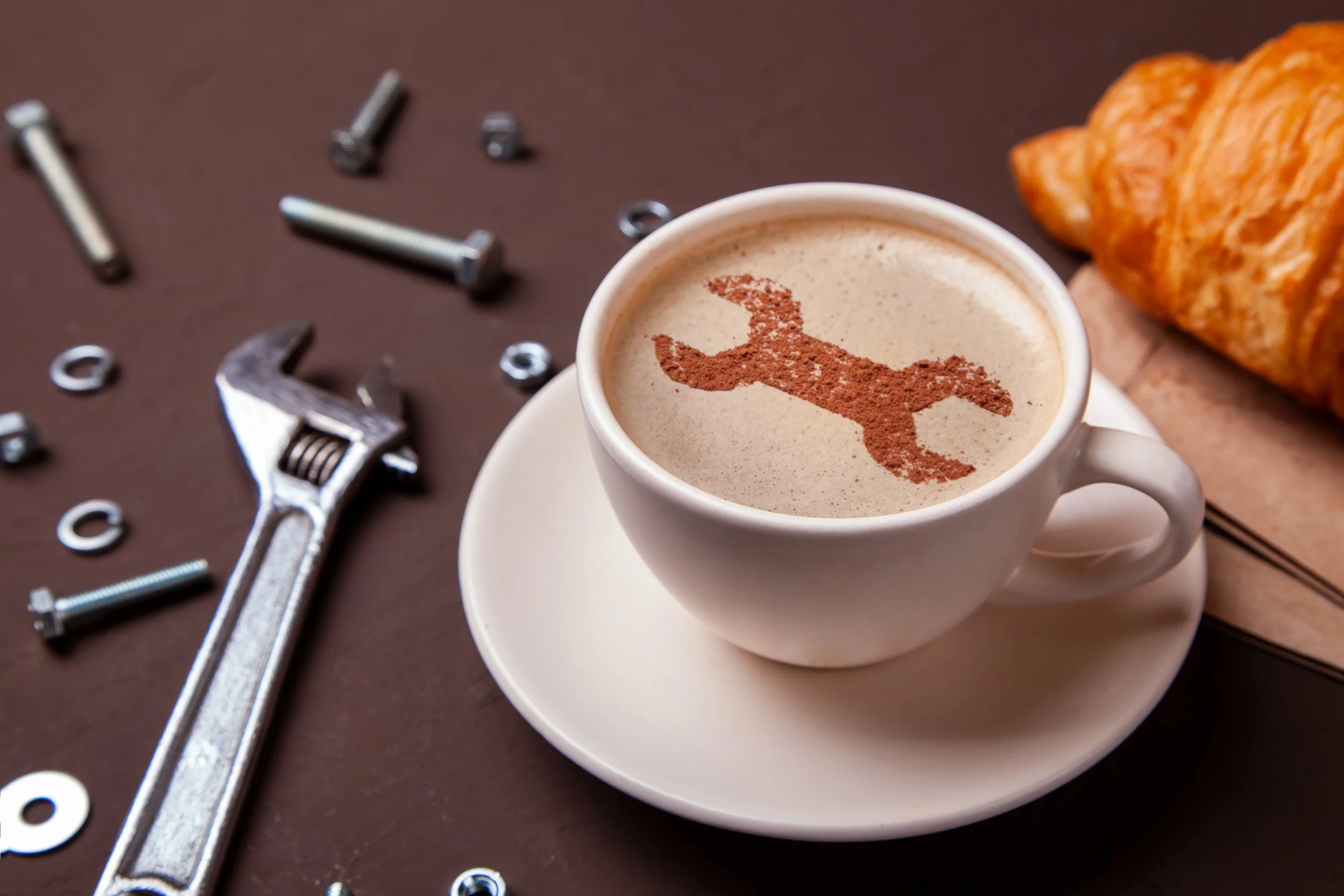This is a short dissertation on why espresso machines need regular service/maintenance, what an owner can do to keep one running at it’s best, and why they require more attention than other pieces of equipment in the business. This is written for high volume coffee shops and pertains to super-automatic espresso machines.
I am an Espresso machine. I need attention.
People have noticed that their espresso machines need more attention than other pieces of equipment in their business. Why is that? Well, in a high-volume coffee business, the espresso machine is (or at least should be) the most used piece of equipment in the building. Think about it. An espresso machine spends hour after hour, day after day making shots of espresso using high pressures (in excess of 130 psi), high temperatures (250 degree superheated water), and sticky grimy coffee beans.
A super automatic espresso machine is a complicated collection of electronic control boards, motors, boilers, sensors, valves, and all kinds of other mechanical wonders. With high use, comes wear and tear that is bound to find the week spots in any mechanical device.
Imagine two identical cars. If one of them is driven only 1,000 miles per year, and the other is driven 50,000 miles per year, the second car is going to require more maintenance and attention than the first car.
“Insert Word Here” Maintenance
Maintenance is important. Weather you call it preventative, periodic, predictive or some other kind descriptor, it needs to be done to ensure the long and hopefully smooth working life of your espresso machine.
The phrase “preventative maintenance” has had a sordid history. It would seem, at some point in time, people started to imply that doing preventative maintenance would ensure that a piece of equipment would not break down under any circumstances. If you have been in the repair industry long enough, you would have heard the phrase, “Why do we do preventative maintenance if it is just going to break down anyways”. Well, you don’t change the tires on your car after you start driving around on the rims. At least you shouldn’t!! To “prevent” (see what I did there) that, you replace the tires on your car before you start driving around on the rims. That form of maintenance happens to be preventative, periodic, and predictive.
There are things on an espresso machine that are going to fail after a given amount of use. We know what those things are, and can replace them on a regular basis to keep your machine running as smoothly as possible.
Keep it Running
To ensure your espresso machine operates at the best of its ability, you should make sure that you can complete the following checklist:
I have had the water at my business tested and installed the proper filtration or reverse osmosis system to ensure that the water that my machine is using (and the water I am serving to my customers) is the best it can be. That system is serviced regularly.
Hard water is death to espresso machines!
My machine tracks the number of drinks it makes and notifies me when regular services are needed.
The brew group is the heart of any super-automatic espresso machine. It needs to be serviced every 30-40 thousand drinks, or at least once a year.
The steam wand on my machine is serviced in regular intervals with the brew group. It is also cleaned at the end of every day. My staff knows that purging the steam wand after steaming milk is crucial to prevent buildup.
Outside of the brew group, steam wands see a lot of use on espresso machines. Keeping them clean and serviced is key to producing product at the correct temperatures.
My machine tracks the amount of grind time, or the amount of coffee it grinds and requests replacement of the grinder burrs when needed.
The burrs in a coffee grinder unfortunately don’t last forever. As they degrade, they produce inconsistent shots and grind volumes.
The staff at my location tracks the shot time, volume, and temperature a couple of times a week to make sure my product is consistent.
Tracking this information will point out potential problems in your machines before they can cause a serious problem.
The espresso machines are cleaned at least twice daily and are never left dirty at the end of the day.
Coffee residue and oil is a sticky grimy business. Left unattended it will lead to pre-mature breakdown in your espresso machine and poor functionality.

